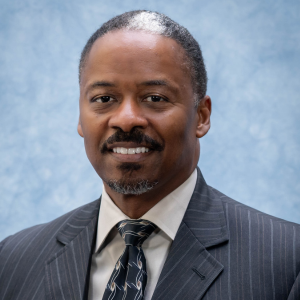Interview: Tackling Drought & Water Scarcity in California
Published on by Water Network Research, Official research team of The Water Network in Case Studies
The Water Replenishment District (WRD) is the largest groundwater agency by population in the state of California, managing and protecting local groundwater resources for four million residents.
Ahead of World Water-Tech North America, Stephan Tucker, General Manager at The Water Replenishment District shares his perspectives on tackling drought and water scarcity in the region and the benefits of visiting the Albert Robles Center for water recycling and environmental learning.

Stephan Tucker, General Manager, The Water Replenishment District
With California increasingly water stressed, how is the region moving from reactive to proactive in its approach to ensuring future water supplies?
Californians are accustomed to moving through cycles of drought. However, in the last five years, the WRD service area in Los Angeles County has experienced record-breaking seasonal weather extremes. These extremes included three of the driest years on record followed by a historical storm season that inundated the region.
WRD has been working proactively to mitigate these seasonal extremes for decades. By working creatively with regional water stakeholders, we’ve shifted our water supply for groundwater replenishment from stormwater and imported water, to stormwater and recycled water.
By investing early and strategically in recycled water projects, we were able to create a locally sustainable supply that could weather the dry years or produce a surplus in wet years. Now that we have a winning formula, we are working with our regional partners to expand water treatment and groundwater storage projects throughout our service area.
How is public outreach and better PR and marketing playing into getting rate payers on board with the need to work together to help conserve water?
WRD has a robust outreach and education team that focuses on raising people’s awareness about groundwater and water conservation. By building people’s environmental literacy, they can better understand the natural resources that we depend upon and the infrastructure that is necessary to deliver clean, safe, and reliable water.
WRD runs digital and print media to reach people across all platforms as well as running the award-winning Water Education Program with field trips and tours of the Albert Robles Center for Water Recycling and Environmental Learning. Through its broad and far-reaching programming, WRD empowers people to feel like environmental stewards and encourages behavior changes that conserve water.
What part do educational community spaces like the Albert Robles Center play in WRD’s public outreach strategy?
WRD’s ARC Center plays a central role in its public outreach. The facility is home to the ARC Field Trip Program which serves thousands of K-12th grade students annually, as well as to the WRD Eco Gardener Program which teaches residents about sustainable gardening practices. As a LEED Platinum Certified building and with state-of-the-art water exhibits, the ARC facility is a bastion of environmental education and green infrastructure.
WRD believes that seeing is believing and ARC allows visitors to interact with water exhibits, see low impact development features put into practice, and taste the purified water produced onsite. It’s also been a meaningful tour destination for elected officials, community and industry leaders, and water stakeholders who are interested in constructing their own water reuse project.
Attached link
https://worldwatertechnorthamerica.com/stephan-tucker-wrd-interviewTaxonomy
- Groundwater
- Groundwater Recharge
- Groundwater Resource
- Groundwater Remediation